
As global crises increase in frequency and protraction, rigorous research identifying strategies to improve humanitarian, displacement, and development responses is increasingly critical. However, implementing research in fragile contexts is challenging and requires adapting existing practices to ensure projects are effectively answering questions necessary to inform the decisions of policymakers and practitioners and meet the needs of affected populations. Responding to this need, organizations and researchers around the world have developed strategies to improve the quality of research in fragile contexts and increase evidence use among program implementers.
IPA and J-PAL’s Displaced Livelihoods Initiative is committed to sharing new and existing resources to ensure that research maintains the highest ethical and quality standards and is accessible to the communities and stakeholders that need it.
For general resources on research design, research ethics, data quality, data collection, data cleaning, and software guides, please see IPA’s Research and Data Science Hub.
Resources
Research Development Resources
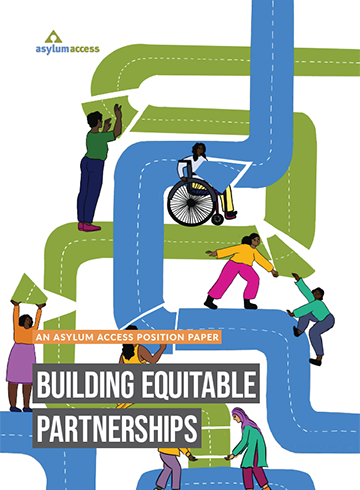 | Building Equitable Partnerships Position Paper and its Accountability Toolkit (Asylum Access)This position paper and accountability toolkit seek to provide INGOs, donors, and other stakeholders with the tools to evaluate and rectify the power imbalances in their partnerships with local and refugee-led organizations. |
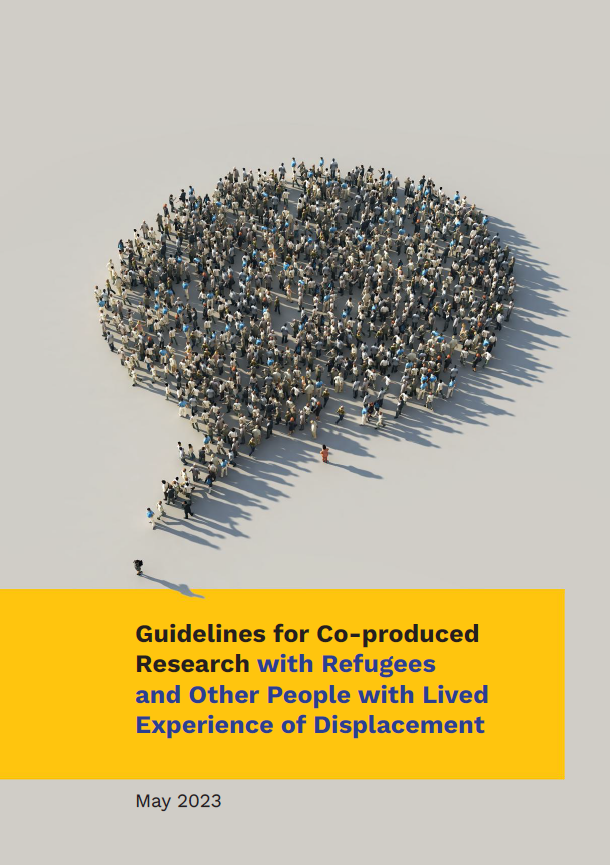 | Guidelines for Co-produced Research with Refugees and Other People with Lived Experience of Displacement (APNOR)These guidelines seek to provide clear principles and strategies for individuals and organizations interested in undertaking, supporting or learning more about research that is co-produced with refugees and other people with lived experience of displacement. |
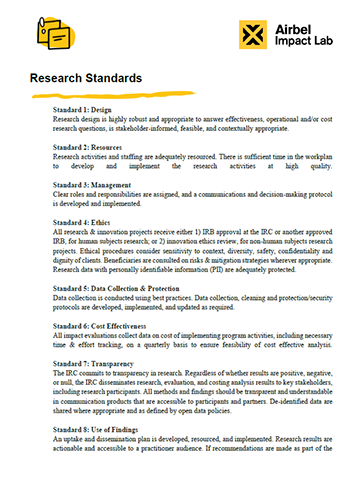 | IRC Research Standards (International Rescue Committee)This document outlines the standards set by the International Rescue Committee to provide guidance on best practices and to set up research studies for success. It covers research design, resources, management, ethics, data collection & protection, cost effectiveness, transparency, use of findings, lessons learned, and equity. |
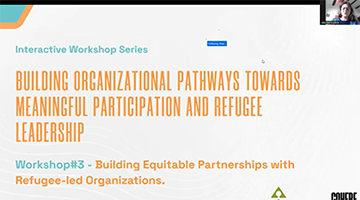 | Workshop: Building Equitable Partnerships with Refugee-led Organizations (Cohere)This workshop (recording) walks participants through the steps and considerations to building equitable partnerships with refugee-led organizations. |
Research Implementation Resources
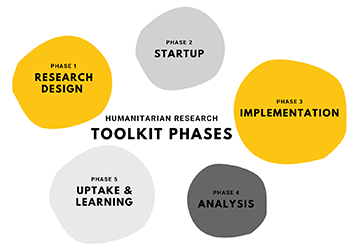 | Humanitarian Research Toolkit (International Rescue Committee)A toolkit for conducting research in fragile and conflict-affected contexts, comprising guidance, training documents, and other practical tools. |
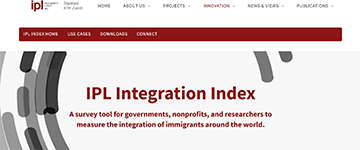 | Immigrant Integration Index (Immigration Policy Lab)This index examines outcome measures on six dimensions of integration: psychological, social, economic, political, linguistic, and navigational. |
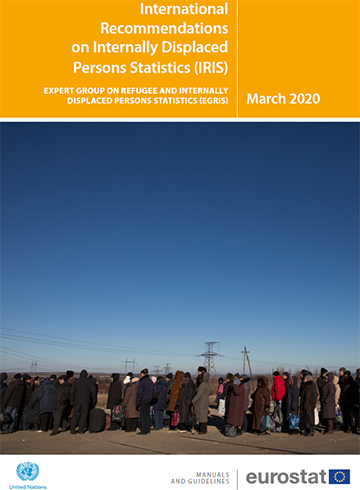 | International Recommendations on Internally Displaced Persons Statistics (EGRISS)These recommendations outline an internationally-agreed framework for countries and international organizations to improve the production, coordination, and dissemination of high-quality official statistics on internally displaced persons that are consistent over time and comparable across regions and countries. |
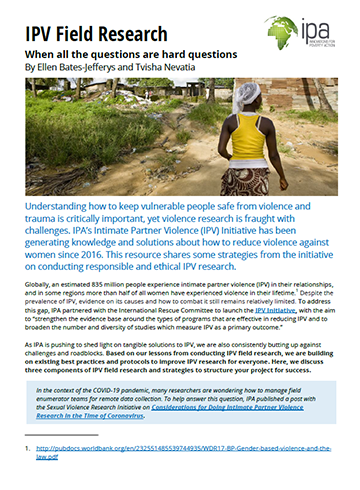 | IPV Field Research: When All the Questions Are Hard Questions (IPA)This resource shares some strategies on conducting responsible and ethical intimate partner violence research to prevent additional harm. |
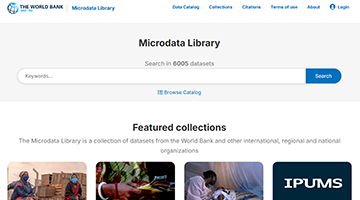 | The Joint Data Center on Forced Displacement’s Microdata Library (JDC)This is a collection of datasets on displaced populations, often including links to the implemented questionnaires. |
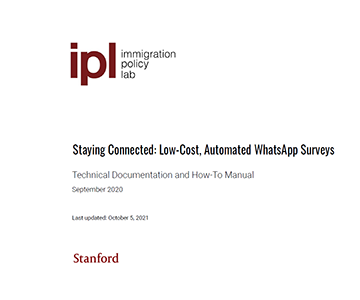 | Low-Cost, Automated WhatsApp Surveys (Immigration Policy Lab)This is a public survey tool for deploying surveys on WhatsApp, which has been used with hard-to-reach and highly mobile populations. |
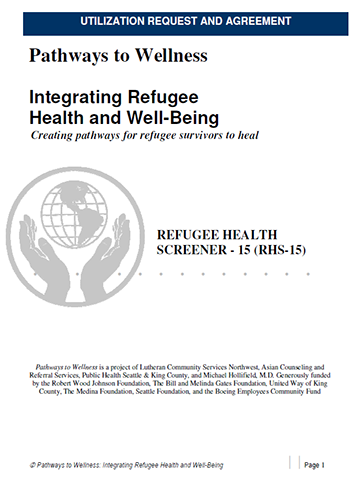 | Refugee Health Screener (Pathways to Wellness)The Refugee Health Screener (RHS-15) is a tool for screening refugees for emotional distress and mental health. This document includes the tool, background on its development, and guidelines for using it. |
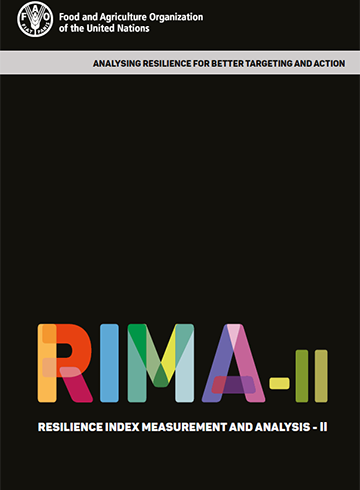 | Resilience Index Measurement and Analysis (FAO)This tool estimates household resilience to food insecurity with a quantitative approach to establish a cause-effect relationship between resilience and its critical determinants. |
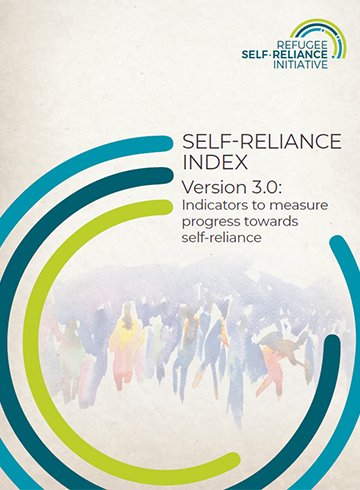 | Self-Reliance Index (Refugee Self-Reliance Initiative)This index is a tool for measuring the progress of refugee households toward self-reliance. |
Ethics Resources
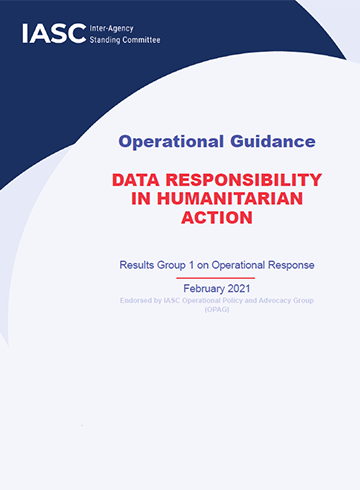 | Data Responsibility in Humanitarian Action (Inter-Agency Standing Committee)This operational guidance provides concrete steps to ensure that data is safe, ethical, and effectively managed in humanitarian action, laying out a set of principles and actions for data responsibility. |
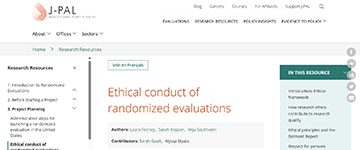 | Ethical Conduct of Randomized Evaluations (J-PAL)This resource is intended as a practical guide for researchers to use when considering the ethics of a given research project. |
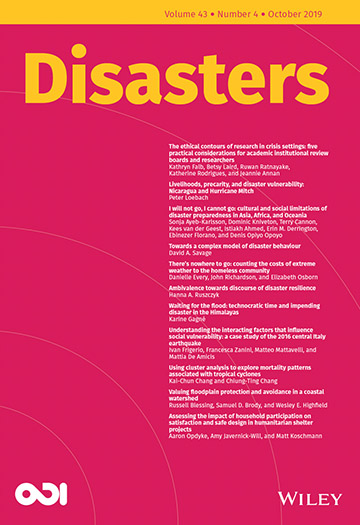 | The Ethical Contours of Research in Crisis Settings: Five Practical Considerations for Academic Institutional Review Boards and Researchers (International Rescue Committee)This paper (non-gated version here) seeks to describe five issues particular to humanitarian settings that IRBs should consider and on which they should provide recommendations to overcome associated challenges: staged reviews of protocols in acute emergencies, flexible reviews of modification requests, addressing violence and the traumatic experiences of participants, difficulties in attaining meaningful informed consent among populations dependent on aid, and ensuring reviews are knowledgeable of populations' needs. |
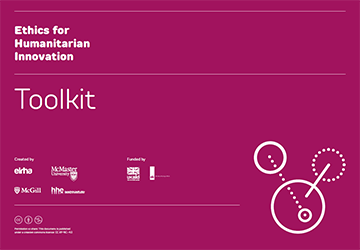 | Ethics for Humanitarian Innovation Toolkit (ELRHA)This toolkit is designed to provide organizations, teams, and individuals with practical ethical resources to manage innovation responsibly and successfully. |
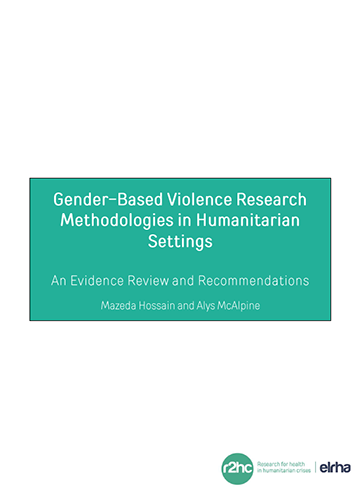 | Gender-Based Violence Research Methodologies in Humanitarian Settings (ELRHA)This document provides an evidence review and recommendations on research methodology and ethics to support researchers conducting research on GBV in humanitarian settings. |
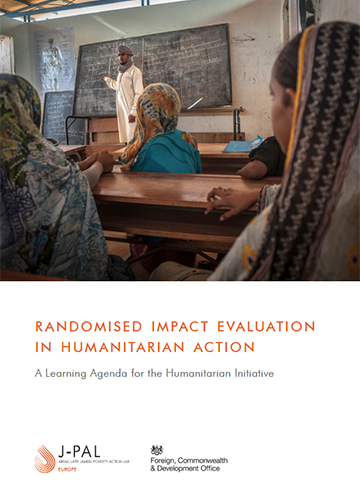 | Humanitarian Learning Agenda (J-PAL)This learning agenda provides guidance on how randomized impact evaluations can be deployed in humanitarian settings and draws on examples from existing studies to inform avenues for future research. |












